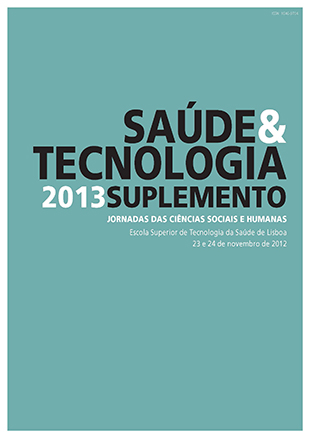Political work in health: tuberculosis in Rio de Janeiro
DOI:
https://doi.org/10.25758/set.934Keywords:
Tuberculosis, Political work, Rio de Janeiro, Social worlds, ArenasAbstract
Intervention on tuberculosis in Rio de Janeiro, Brazil, reveals an intensification and extension of the articulations between people, organizations, and institutions involved. To understand this process I mapped the arenas and social worlds present. Social worlds are unities of collective action, defined by the sharing of goals and actions. To achieve those goals they need to interact with other social worlds. The spaces where they interact on themes of their common interest, but on which they hold different perspectives and even different goals, are called arenas. The study revealed that the arena of tuberculosis in Rio de Janeiro has extended in the last decade, with more, and more diverse, social worlds involved, through the “political work” of persons and organizations, at the local, national, and international levels, that is, through the attribution of power to certain entities, based on the ethical valuation of common goals. This political work is implying the intersection with the arenas of HIV-Aids and the National Health System. The extension of the tuberculosis arena redefines the disease and the ways people act on it. Social and economic support to patients, the treatment of co-morbidities, human rights, and other issues that go beyond the biomedical perspective, now integrate the agendas of tuberculosis. In this process, people also redefine the boundaries of action on health.
Downloads
References
Clarke AE. Disciplining reproduction: modernity, American life sciences, and the problems of sex. Los Angeles: University of California Press; 1998. ISBN 9780520207202
Clarke AE. Situational analysis: grounded theory after the postmodern turn. Thousand Oaks: Sage Publications; 2005. ISBN 9780761930563
Strauss AL. Continual permutations of action: communication and social order. New York: Aldine Transaction; 1993. ISBN 9780202304717
Gandy M, Zumla A. The resurgence of disease: social and historical perspectives on the “new” tuberculosis. Soc Sci Med. 2002;55(3):385-96.
World Health Organization. What is DOTS [Internet]. Geneva: WHO; 2012 [cited 2002 Nov 15]. Available from: http://www.who.int/tb/dots/whatisdots/en/index.html
Santos Filho ET. Política de TB no Brasil – Uma perspetiva da sociedade civil: tempos de mudanças no controle da tuberculose no Brasil [Tuberculosis policy in Brazil – From the civil society perspective: times of change in tuberculosis control in Brazil]. Rio de Janeiro: Open Society Institute; 2006. Portuguese
Villa TC, Ruffino-Neto A, Arcencio RA, Cardozo-Gonzales RI. As políticas de controle da tuberculose no sistema de saúde no Brasil e a implantação da estratégia DOTS (1980-2005). In Ruffino-Netto A, Villa TC, editors. Tuberculose: implantação do DOTS em algumas regiões do Brasil (histórico e peculiaridades regionais). Ribeirão Preto: Instituto do Milênio Rede-TB; 2006. p. 29-48.
Dodier N. Leçons politiques de l'épidémie de sida. Paris: Éditions de L'École des Hautes Études en Sciences Sociales; 2003. ISBN 9782713218149
Castellanos PL. Análisis de situación de salud de poblaciones. In Martinez Navarro F. Vigilancia epidemiologica. Madrid: McGraw Hill/Interamericana; 2004. p. 193-213.
Nunes JA. Saúde, direito à saúde e justiça sanitária. Rev Crítica Ciências Sociais. 2009;(87):143-69. Portuguese
Fassin D. Entre politiques de la vie et politiques du vivant: pour une anthropologie de la santé. Anthropol Soc [Internet]. 2000 [cited 2013 Mar 4];24(1):95-116. Available from: http://classiques.uqac.ca/contemporains/fassin_didier/Entre_pol_vie_et_pol_vivant/Entre_pol_vie_et_pol_vivant.html. French
Downloads
Published
Issue
Section
License
Copyright (c) 2022 Saúde e Tecnologia

This work is licensed under a Creative Commons Attribution-NonCommercial-NoDerivatives 4.0 International License.
The journal Saúde & Tecnologia offers immediate free access to its content, following the principle that making scientific knowledge available to the public free of charge provides greater worldwide democratization of knowledge.
The journal Saúde & Tecnologia does not charge authors any submission or article processing charges (APC).
All content is licensed under a Creative Commons CC-BY-NC-ND license. Authors have the right to: reproduce their work in physical or digital form for personal, professional, or teaching use, but not for commercial use (including the sale of the right to access the article); deposit on their website, that of their institution or in a repository an exact copy in electronic format of the article published by Saúde & Tecnologia, provided that reference is made to its publication in Saúde & Tecnologia and its content (including symbols identifying the journal) is not altered; publish in a book of which they are authors or editors the total or partial content of the manuscript, provided that reference is made to its publication in Saúde & Tecnologia.







